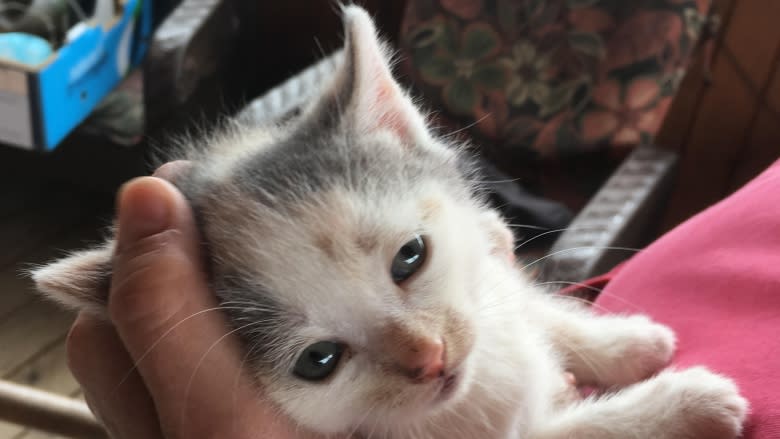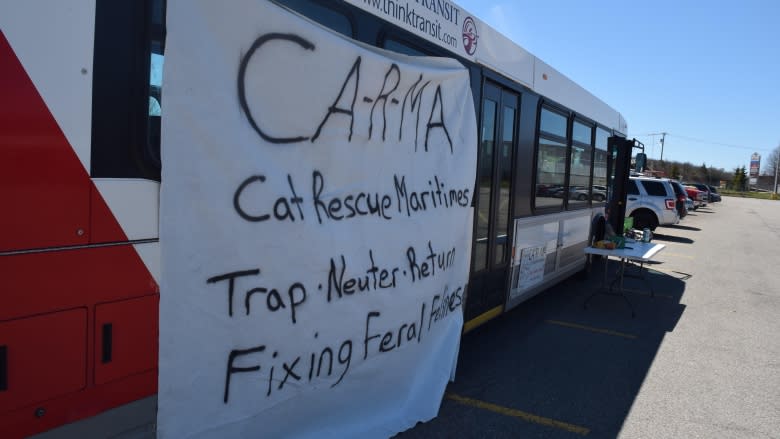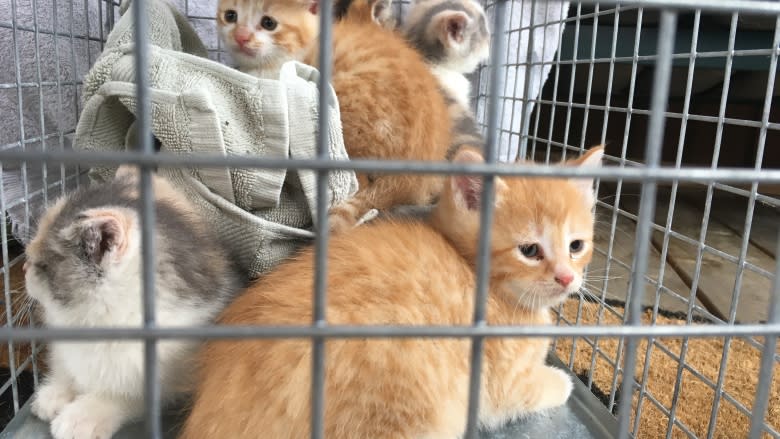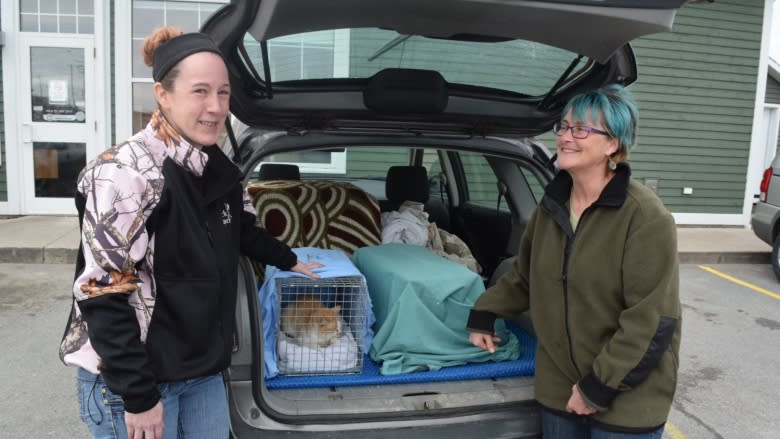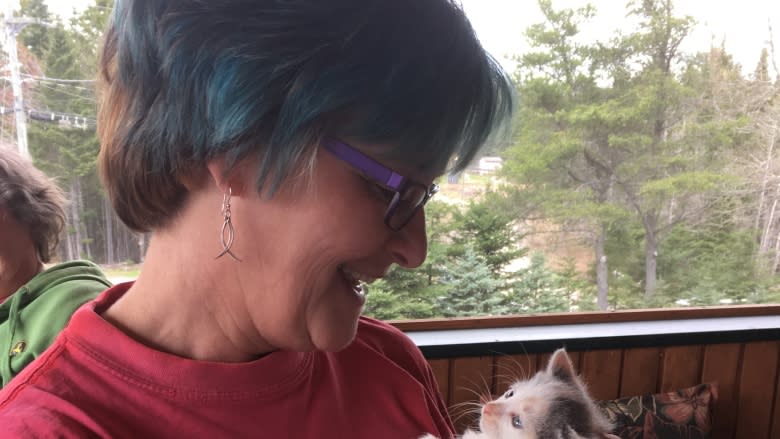9 lives: How Cat Rescue Maritimes continues to soldier on
Down a country road between Quispamsis and Hampton, a feral kitten nests in the arms of Lynn Roy, co-director of the Saint John Cat Rescue Maritimes branch. The small animal bites and scratches to little effect.
This is the highlight of Roy's job.
"Taking a little feral kitten, bringing them round and seeing them go to a lovely home," said Roy, rubbing the kitten.
The organization, also known as Carma, traps, spays and neuters feral cats before releasing them back into the wild to help control the population.
While in Kings County, Carma was able to trap six kittens one weekend in early May. And after setting a trap, they were able to grab the mother, Nastypants, the next day.
Catching her was a big step as the cat was about to go into heat the next week.
"[It] stops the colony in its tracks," said Jessica Martin, who is also a co-director with the organization.
Since the animal is only a few weeks old, the nameless kitten will head to foster care instead of being re-released.
But for Carma volunteers, it's not all warm and fuzzy.
Never ending problem
Cat populations are a citywide problem many people don't see. This kitten came from a colony started when a resident moved away and left their single cat. Now more cats roam the woods.
Volunteers say it's an exhausting, uphill battle in a war they know will never end. There are just too many feral cats out there. Too many colonies across the city. Too many ignorant or negligent pet owners.
Still, it's a campaign Carma members are determined to fight.
"It has to be done," said Martin. "Somebody has to do it. There are really no resources out here. Nobody wants to deal with ferals."
"So, we're the ones that take them on."
Martin joined Carma after a feral cat had a litter under her porch seven years ago.
"Unfortunately we found her dead on the side of the road trying to get back to her kittens," she said. "Basically I had to cut a hole in my back porch and get the kittens out."
She said she tried to hand raise them herself and stayed on with Carma ever since.
Dark stories live on
Over the last seven years, Martin said she's seen things she'll never forget.
"We had a female come in a few years back with her leg in a snare," she said. "Her leg was literally rotten."
Veterinarians had to amputate the leg above the shoulder.
"We've had cases of three litters of purebreds taped up in a box and thrown in a dumpster on garbage day," she said.
"Just a lot of cases like that," she adds. "It makes it so you just don't like people."
Catching breeders important
Carma works with veterinarians and the New Brunswick SPCA, but is an independent organization.
Martin and Roy said they would like to see a spay and neuter clinic in Saint John.
"The cost of fixing these cats is the reason we're seeing so many people dumping them."
It costs around $300 to neuter a male and $400 to spay a female, Martin said.
"Funding is always an issue," said Roy. "[But] Saint John is a very generous, generous city when it comes to animals."
Feeding cats is another big concern and as a result, the volunteer organization needs to fundraise.
Earlier this month, the non-profit was loaned a city transit bus and parked it outside the Atlantic Superstore on Rothesay Avenue. They will host a fundraising barbecue in early June.
Capitalizing on the warmer months is key, said Roy, as her group cannot cat wrangle in winter.
More education needed
The group also hopes more people understand what the rescue does and doesn't do. It's not the group you call to find a new home for your cat or have it fixed.
And just because you catch a feral cat near your house doesn't mean Carma can take the animal, Martin said. The organization needs to be able to return it to the wild, not the streets.
"People don't realize that with a cat colony there is no distinction between, 'this is my grandmother, this is my father, this is my sister.' They just breed with whoever to continue the colony," said Roy.
"It leads to a lot of unhealthy cats," Martin added.
Cats with all sorts of inbreeding problems and other health issues have come through their doors, they said.
People also need to know what they're getting into before they volunteer with Carma.
It's not for the faint of heart, Roy said. It's hard to handle that that many cats are going to die.
They've lost some volunteers along the way over that.
"I know I've gotten to the point where I've thought about quitting," said Martin. "It eats away at you. You're almost numb when it comes to these sick cats."
Still, for Roy, Martin and the rest of their small crew of warriors, something compels them to continue.
"When we go out to colonies, it just makes you more determined," said Roy. "If you're going to volunteer, ... do it on something that you appreciate, that you comprehend, that you have a passion for. Otherwise, the volunteering is just going to make you frustrated."
"You keep going with it because you know there is nobody else who is going to do it," Martin adds. "And the ones that do survive and get good homes, make it worth it."

